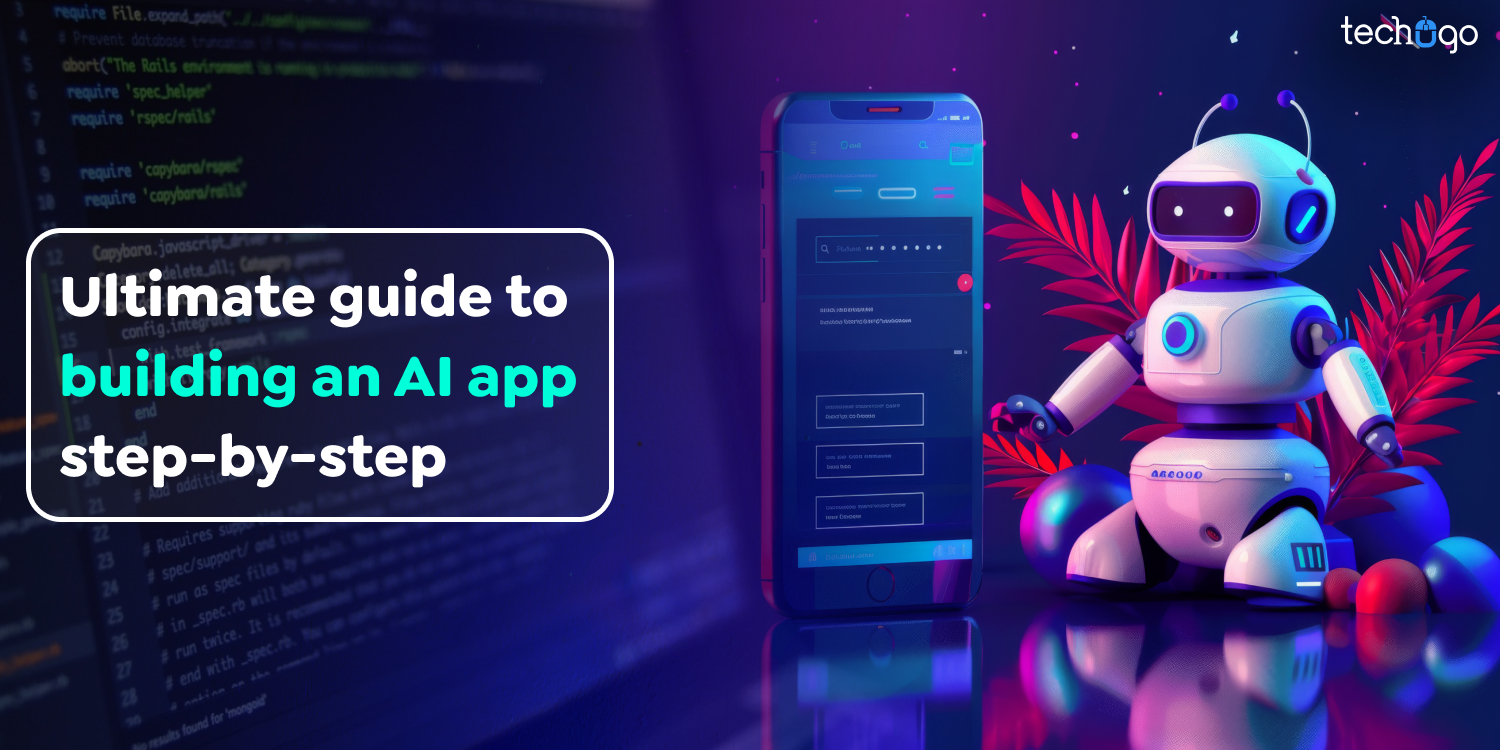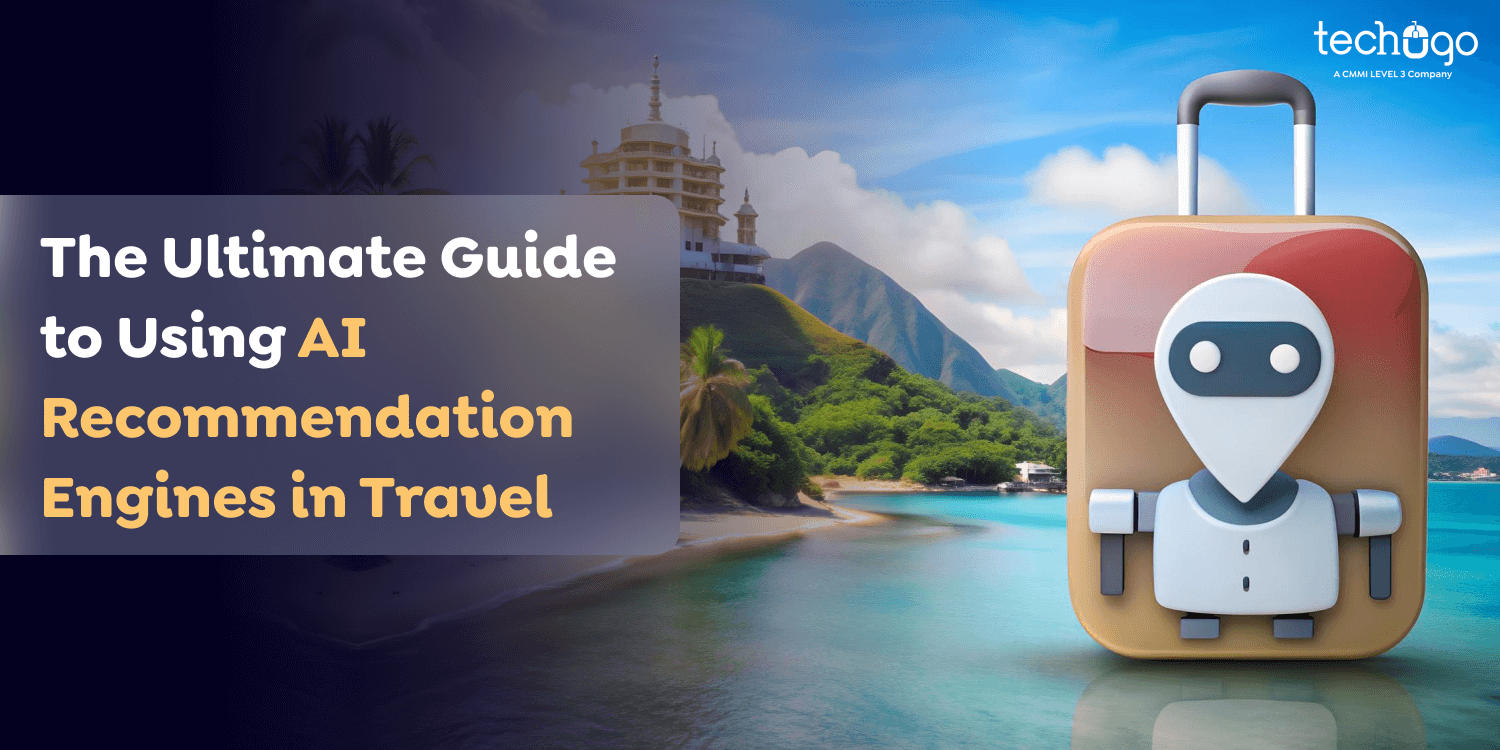21 Oct 2024
Updated on January 31st, 2025
AI in Recruitment: Revolutionizing the Hiring Process for Businesses
Matthew Connor
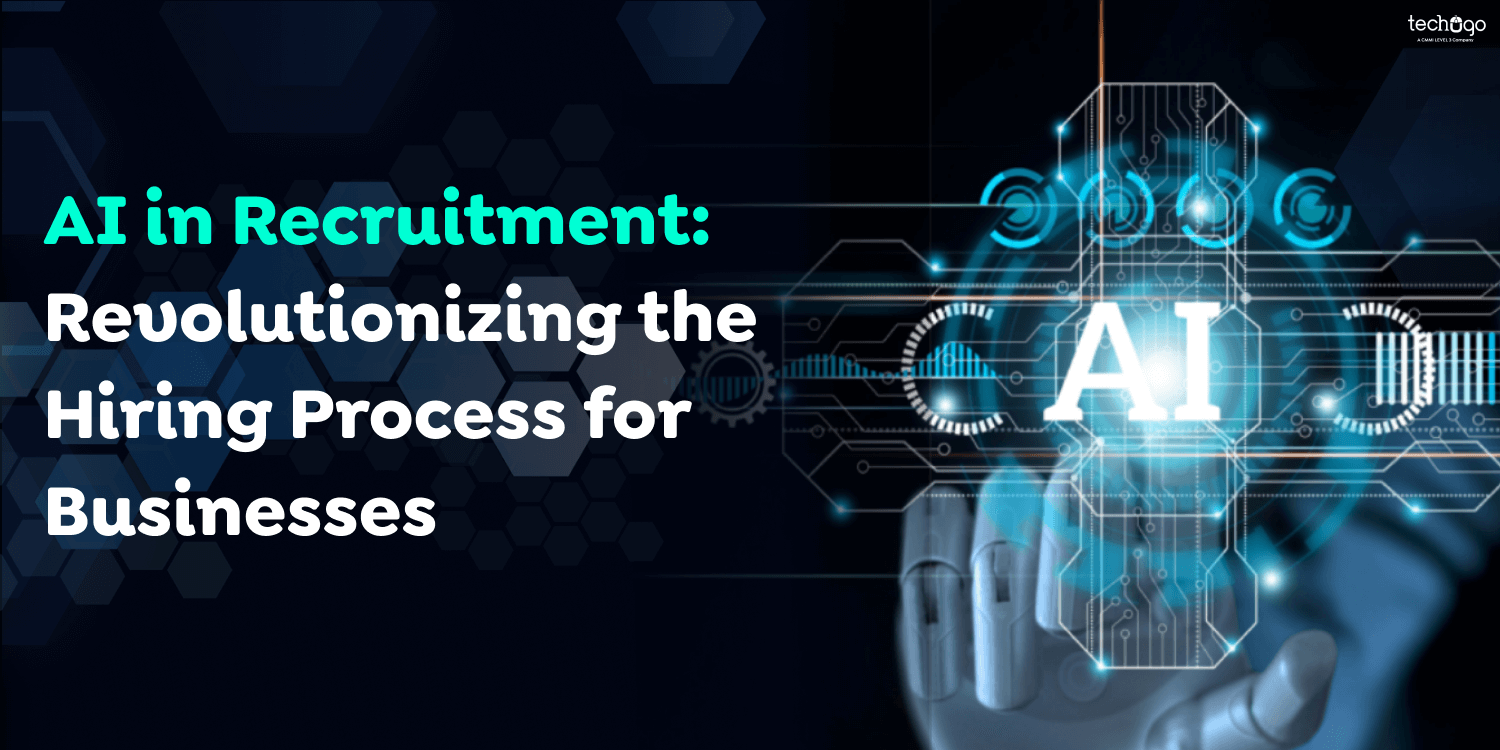
Artificial Intelligence technology signals an exciting new phase in recruitment. Hiring managers’ tasks are getting more complicated each new year, such as reducing bias and ensuring that hiring processes are transparent.
Artificial intelligence is growing in every aspect of business, and recruitment isn’t an exception. According to Gartner, 38% of hiring managers have used AI solutions to improve hiring efficiency. AI is increasing exponentially in business and is projected to earn $1.8 trillion by 2030.
This blog focuses on the importance of using AI in recruitment and summarizes the significant opportunities, hurdles, and advantages AI development can bring to the industry.
What Exactly is AI to do with Recruiting?
In recruitment, AI technology simplifies and automates processes by helping recruiters analyze data to make informed decisions, such as screening resumes, conducting pre-employment tests, and predicting a candidate’s success and cultural fit.
With AI in recruitment, recruiters can reduce the time and effort required to recruit, improve the quality of matches between applicants to lessen bias, and make better choices based on data. AI-based recruiting can revolutionize recruitment by enhancing efficiency, precision, and overall effectiveness when finding the best talent for companies.
Also Read : AI for Enterprise: Transforming the Future of Business Through Innovation
Ways that AI is Changing the way that People are Recruited
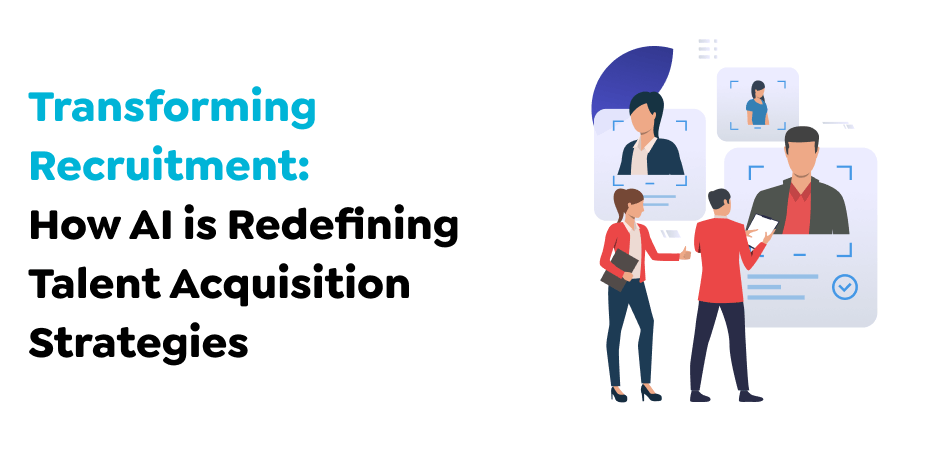
In the final analysis, AI offers new possibilities for efficiency and impartiality, raising concerns about ethicality and fairness throughout the recruitment process. Here are some ways AI tools are revolutionizing recruitment.
1. Automated Screening and Sourcing:
AI tools for recruitment can examine and scan CVs, letters of cover, and job applications to find the best candidates based on specific phrases, qualifications, and keywords. This can save time and energy compared to manual application reviews.
2. Matching of Applicants:
AI algorithms can analyze the job descriptions and profiles of applicants to identify the best match in terms of abilities and previous experience, among other things. This lets you quickly locate the most skilled candidates to fill the position and reduce the time it takes to recruit.
3. Chatbots and Virtual Assistants:
Chatbots and virtual assistants interact with applicants, answer their questions about interview dates and provide feedback on the progress of their applications. If they plan the process well, they enhance the applicants’ experience and improve the efficiency of processes.
4. Use of Predictive Analytics:
AI analyzes vast quantities of data to discover patterns and patterns that would aid you in making better hiring choices. For instance, predictive analytics can determine which sourcing channels are the most efficient, which candidates are the most likely to take a proposal, and what workers will succeed in the specific job.
5. Inclusion and Diversity:
AI can eradicate discrimination in hiring by focusing more on the requirements of an individual’s knowledge and experience rather than subjective factors such as ethnicity, gender, or name. This will create a more diverse workforce by ensuring greater diversity in hiring.
6. Interviews:
AI-powered video interview software analyzes candidates’ faces, voice tone, and language patterns to assess their ability to communicate, emotional intelligence, and other personality characteristics. This will allow for an objective and exact evaluation of applicants, particularly for remote or international positions.
7. Employee Retention:
AI can analyze employee engagement surveys, reviews, performance evaluations, and other data points to identify patterns that may indicate an employee’s potential for turnover. This can help address issues before they become severe and improve employee retention rates.
8. Mapping Process of Talents:
AI can assist in determining potential candidates for roles in the future by analyzing their capabilities, background, and experience. This will help create an inventory of talent and cut down on the cost and time required to hire for crucial jobs in the near future.
9. Continuously Learning:
AI tools for recruiting improve and evolve over time in response to feedback and data. This will help you continuously enhance the recruitment process and the hiring outcome.
10. Ethics:
Using AI in recruitment raises ethical concerns regarding privacy, bias, and transparency. It is vital to make sure that the use of AI will be moral and accountable and that you’re transparent about how AI is employed in the recruitment process.
Also Read : Understanding the Significance of AI in the Energy Sector: Key Benefits and Use Cases
Advantages of AI: Enhancing Recruitment Practices

How can AI be used to alter the recruitment process to make it more efficient? The answer is in many ways. AI assists hiring managers and recruiters to fill positions faster and more effectively. When properly utilized by your company, AI can do the following.
1. Reduce Manual Work
The “do more with less” method is a common one in talent acquisition (TA), as is the majority of HR specialists (57%) working above their average capacity, as per a 2023-2024 State of the Workplace Report. AI will reduce the manual burden placed on recruiters and help them concentrate on human-centric, strategically oriented tasks like conducting standard interviews and making data-driven decisions.
2. Mitigate Bias
Human biases, conscious and unconscious, can influence decisions, leading to discrimination, bad judgment, and poor decision-making. AI algorithms are created to reduce biases and capitalize on merit. For example, AI can mask demographic details in the selection process like names, age, or race, as well as gender, to ensure that everyone has the same chance.
3. Bridge Skill Gaps
The requirements for skills in the modern age of AI are evolving in a flash. One study concluded that about half the abilities in use today will not be relevant in two years. AI will be able to determine what capabilities your employees possess and anticipate the capabilities they’ll require in the near future. It could even assist in creating specific learning paths for employees.
4. Develop Recruitment Strategies
AI can analyze market trends, salary information, and employee performance to help you make informed hiring decisions.
5. Reduce Turnover
AI can evaluate the results of surveys by employees and rates of turnover to assist in the development of innovative strategies to keep employees and improve overall job satisfaction. With nine out of ten companies worried about retaining the employees they have, AI can assist in the development of effective strategies to stop employee turnover.
Also Read : AI in Dating Apps! Swiping into the Future of Making Matches via Technology
Challenges and Risks: Navigating the AI Landscape
Although artificial intelligence offers numerous advantages for recruiters, it’s only appropriate for some industries or situations. The potential downsides to its use include the following.
1. Data Quality
The quality of AI results depends on the high-quality information used in training AI models. Weddy Batchelder, Salesforce’s SVP and Chief Data Officer, explained the process in this way: “As companies rapidly embrace AI and reap its advantages, trust has to be their primary goal. To instill confidence in AI, it is essential to first establish confidence with the database that drives AI.”
Consider this cautionary story about Amazon, whose experts in machine learning developed an application for screening candidates to identify the best software developers. The training data was dominated by male developers. Ultimately, women could not participate in the hiring process, leading to Amazon completely dropping the internal hiring process altogether.
When choosing an AI recruitment technology, vet your AI vendor and understand how they built their AI tool, including whether it’s based on the latest industrial-organizational science and what kind of data they used.
2. Legality and Legality of AI in the Process of Recruitment
Compliance is essential for HR practices since it guarantees that an organization adheres to ethical standards and laws safeguarding employees as well as an image of the company.
However, broad federal AI regulation regarding AI is a long way to go. Therefore, it’s vital to implement AI solutions that adhere to ethical standards to remain relevant and compliant in the long term while gaining the benefits of AI.
Make sure that your vendor ensures the sameness and fairness of their software to avoid issues such as legal cases, unfair hiring, and incorrect employee performance information. Regular updates should also be aligned with changing legal requirements to avoid discrimination issues.
3. Humans are Required Inside the Loop (HITL)
AI-based solutions aren’t 100% reliable. They can result in inaccurate results or even hallucinations. Many screening software solutions for candidates employ AI in some way or another. However, these tools should not remove the human judgment factor from the equation or replace human judgment. In fact, AI technologies should help recruiters make the best choices possible.
Also Read : Revolutionizing Supply Chain Efficiency: The Role of AI in Demand Forecasting
What AI Recruiting Tools Are Available?
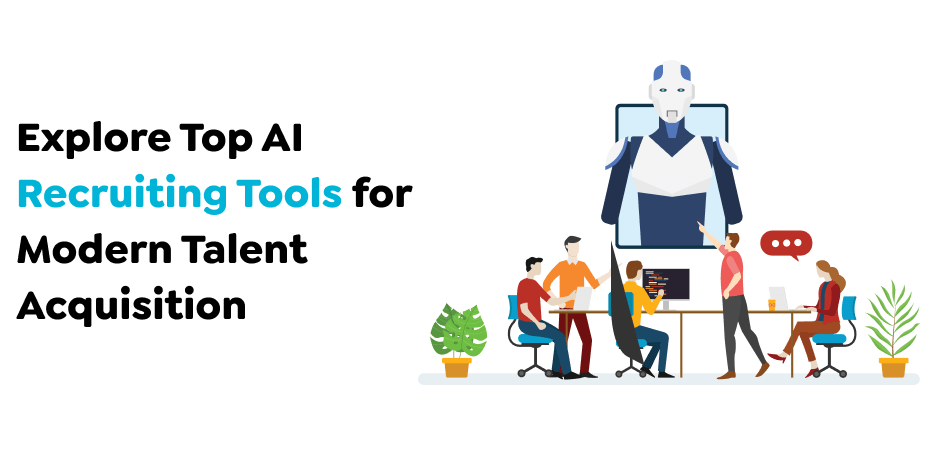
Machine learning and AI assist the hiring process, candidates, and managers throughout their journey, helping them meet their goals more quickly. AI is the basis for the following essential functions:
-
Personalization:
It allows for personalized content throughout the hiring process. AI provides personalized experiences on company career pages by suggesting jobs along with dynamic and relevant content based on a candidate’s profile, search background, similar job openings, and even location.
For Employees, AI is able to provide the same personalization tools as candidates from outside the talent market, in addition to career pathing, opportunities for learning and development, mentoring, and referrals.
For managers and recruiters, AI creates a personalized seed pipeline that matches abilities and compatibility, allowing recruiters to find new talent and then rediscover good candidates automatically.
2. Intelligent Search:
Intelligent Search on a career website provides accurate, pertinent job results to assist candidates in locating the perfect job. Search results that are irrelevant and inconclusive results can result in a low rate of conversion for companies. The search must instead be smart enough to recognize the intention and context of the candidate’s query and the relation between words. Also referred to by the term semantic search, this search technology aims to learn about language just as humans would.
Connecting the ideal job to the right person is essential to attracting top talent. AI helps with spell correction and prediction, synonyms, and natural language processing to give the most relevant search results.
3. Chatbots for Conversational HR:
These bots, which run on artificial intelligence, assist people in finding the right job quicker by using personalized conversations, job-searching screening, and scheduling.
By leveraging a master database, the chatbot uses natural language processing in addition to natural language understanding to ensure that it understands the purpose behind a prospective employee’s question and provides accurate responses.
For HR professionals, this is a complex issue. Employers can further empower the bot by studying job seekers’ chat conversations and providing additional answers that meet their needs.
A talent CRM can help build an engaging and tracking pipeline of talent and boost productivity by utilizing dynamic lists, actionable information, fit scoring, and more. It assists recruiters in identifying the latest talent and keeping them in touch with top talent via the application in the form of AI insights.
4. Schedule an interview:
It simplifies the scheduling process for candidates, recruiters, hiring supervisors, and everyone else involved in recruiting by allowing hiring team members’ calendars to synchronize their schedules so that applicants can choose an interview time that is suitable for everyone.
5. CRM is the Engine Behind it:
The process is smooth for both the recruiter and the candidate. The only thing a candidate needs to do is pick a time that works with their schedule. The interview is then scheduled automatically. The interview is then listed on the recruiter’s calendar, eliminating the usual back-and-forth communications required for the manual scheduling of interviews.
6. One-Way Audio Tests:
This is an additional tool run by CRM, which assists candidates in making a good first impression, speeds up the screening process for recruiters, and saves time for the hiring manager.
7. Technology Integrated Seamlessly within CRM:
The recruiter, as well as hiring managers, are able look up information about candidates in the same location, identify the best-suited candidates first, show the brand of their employer by personalizing it, and gain important information on the conversion rate and data of candidates by using assessments analytics.
8. Actionable Insights:
Actionable insights provide the ability to score engagement and fit, allowing teams to find new job candidates, reintroduce existing candidates, use cloud-based solutions, analyze candidates’ intent, track trends in the pipeline, and analyze the dynamic talent pool-easing, the long-term battle that talent managers have in ensuring the quality of their data and its reliability.
Additionally, AI-powered insights enable hiring managers to focus more on the best candidates, reducing the time required to hire and cost-per-hire.
Also Read : How an AI Medical Chatbot is Shaping the Future of Patient Care
Future of AI in Hiring
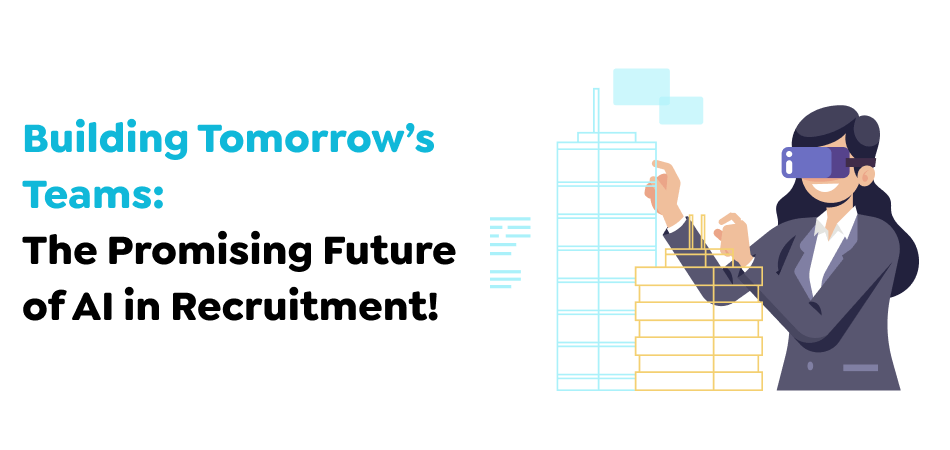
Data powers AI. It is also the basis for our decisions regarding the best way and time to utilize AI. What can the data reveal concerning the potential AI in HR?
1. Four out of five people would like to understand more about AI in their work.
The data, derived from LinkedIn research, suggests that more people are eager to understand AI and keen to enhance their abilities to stay up-to-date with the new technology and remain at the top of their field. Employers need to respond by offering the right programs and resources that keep up with the increasing demand for AI expertise, including hiring managers and employees.
2. About 53% of employees think they must prepare to deal with AI.
It’s crucial to offer training and support to integrate the latest technologies, such as AI, into the work environment. This can increase productivity, creativity, and efficiency when using AI for HR and your company. Given that only 23% of employees feel a sense of belonging to their job and work, finding ways to increase their satisfaction is not just a nice thing but a must.
3. Over half of our jobs could be affected by AI.
The skills required to perform these jobs will rapidly change as technology touches 2030.
HR decision-makers and recruiters: Recruiters will spend less time recasting, which shows that a significant portion of the budget increase will go to AI-powered hiring tools.
This indicates an optimistic outlook in AI and recruitment, as decision-makers and recruiters firmly believe in AI’s potential advantages and its impact on hiring.
4. About 70 hiring managers believe they see a rise in AI at work
This indicates that recruiters’ solid agreement on the significance and use of AI in HR will continue to increase.
In the meantime, optimism and interest in HR decision-makers and recruiters are increasing each year. As the job market keeps growing, we can anticipate an increase in AI technology employed in the hiring process, with the aim of speeding up and making it smoother and more efficient.
Also Read : How AI is Transforming Guest Experiences in the Hospitality Industry
The Transformative Role of AI in Talent Acquisition
Artificial Intelligence is changing the roles of the recruiter each day, according to Fullen. “It’s shifting from hunting and finding candidates towards communicating and connecting.”
As increasing portions of the process for acquiring talent is influenced through technology, hiring managers will spend less time on their work “filling the funnel” and spending more time “talking to candidates, selling candidates, selling managers, and pairing the right folks together.”
Even if they do not employ AI on a large scale, HR professionals and recruiters need to know the ways AI is changing the job market, and along that’s affecting expectations of employees and employers. That means also understanding how potential candidates are using AI in their applications–because it goes beyond just polishing up resumes.
Evolution of AI in Recruitment Development
The field of recruitment is constantly changing. With the aid of AI, businesses can accelerate the process, develop a diverse workforce, and quickly find interest. This is how AI in recruitment has revolutionized the process of sourcing talent:
1. Transition of Traditional Methods to Tech-Driven Methods
The shift between traditional techniques alone and the tech recruitment process could have been faster and more prone to mistakes, biases, and inefficiencies, so recruiters were required to sort through resumes manually to choose the best candidates based on their judgment or expertise. This took time and could limit the talent pool considerably. Nowadays, however, technology-driven methods can provide faster solutions. Using the live talent pool in real-time recruitment is an entirely new method.
Initially, AI tools focused mainly on automating mundane tasks like screening resumes. As technology advanced, AI tools began to offer advanced features, such as the capability to anticipate and analyze data and advanced matchmaking of candidates to meet the ever-growing demand for a diverse and diverse workforce. This is causing an overhaul in the way that employers hire.
2. Data and Machine Learning
The efficiency that artificial intelligence can bring to the world recruitment is heavily dependent on machine learning algorithms. Through the analysis of massive amounts of data, computers can detect certain patterns or trends which would be missed by human beings by themselves, similar to the traits and abilities of highly successful employees. This can help improve the criteria used to choose candidates.
LinkedIn conducted research and found hiring directors of 72% of companies view artificial intelligence as an instrument to hire, specifically when recruiting candidates (58%) and screening applicants (56%). These figures show AI’s growing importance in enhancing the recruitment process to increase efficiency and effectiveness.
3. AI’s Impact on Candidate Experience
The candidate’s experience is an essential element in recruitment. It could influence applicants’ opinions on the organizations they’ve submitted their applications to. AI-powered technology has significantly helped in this process—applicants by providing chatbots with instant answers to queries. AI-powered tools make the process more personal by recommending specific job opportunities for the applicant based on their profile or previous applications.
Also Read : Generative AI vs Predictive AI: Choosing the Right Technology for Your Business
Conclusion
As the recruitment field evolves, flexibility and innovation are essential for applicants and recruiters. The impact of hiring AI within the next few years is indisputable. As technology improves, businesses that adopt AI-powered platforms and tools will be able to gain an advantage in attracting and keeping top talent.
With the help of an AI app development company like Techugo, businesses can enhance the accuracy, efficiency, and effectiveness of hiring processes, ultimately leading to better outcomes for employees and candidates. Staying current with the latest technology and keeping up with the latest trends in the field is essential for success in the constantly evolving job market by 2024.
With AI at the helm this year, the outlook for hiring has become more promising than ever before, with the promise of effective, fair, and transparent hiring practices that benefit both the employers and the candidates. So, don your hats and make the most of the AI revolution in the hiring process. It’s going to alter the rules!
Get in touch with us today to discover how AI in recruitment can transform your hiring process!
Get In touch
We are excited to here from you and let’s start something special Together. Call Us for any inquiry.
Write us
sales@techugo.caJust a call away
About you

